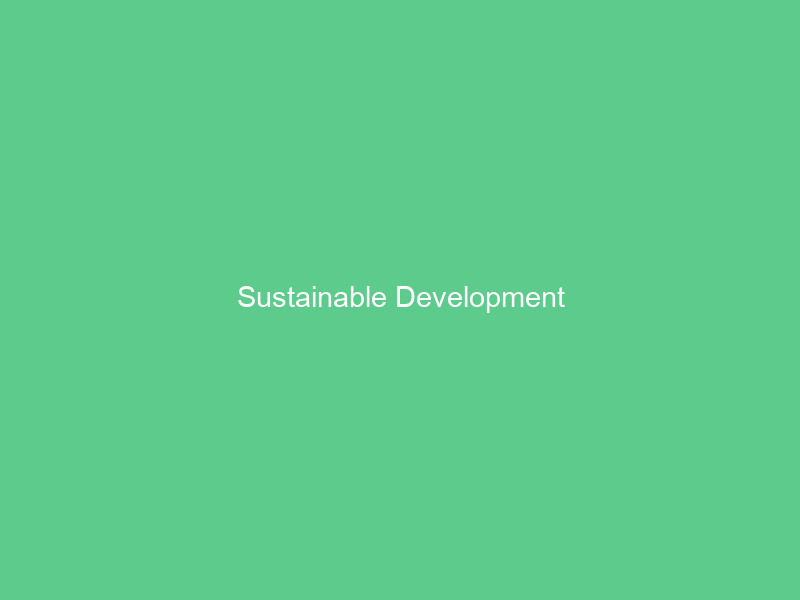Sustainable development refers to advancing human well-being and economic prosperity without endangering future generations’ ability to meet their own needs.
Responsible management requires that natural resources are utilized responsibly, and that waste generated does not exceed the capacity of the environment to absorb it.
Governments across all nations should work toward developing production and consumption policies that align with nature’s ecological processes, while simultaneously encouraging awareness, education, and compliance for sustainability issues.
Human Rights
Human rights are inextricable from our dignity as human beings and cannot be taken away or diminished by anyone, including governments. Additionally, their fulfillment depends on one another; one right is dependent upon another for fulfillment.
Sustainable development involves the attempt to balance human activities with environmental carrying capacity (Goodland & Daly, Citation1992). This requires people to reevaluate how they meet daily needs and desires – including population control measures – including how people access health services.
Sustainable development encompasses human rights, decent work, quality health care and education, sustainable natural resource use, social and economic justice and respect for the environment. The UN Sustainable Development Goals – or SDGs – seek to meet these objectives by 2030. SDSN and Bertelsmann Stiftung have released an online publication called SDG-Tracker that tracks progress made toward 17 goals over time. It is designed to be as accessible and usable by everyone.
Social Justice
Social justice is an essential aspect of sustainable development, which has gained greater attention as global communities strive to meet the Sustainable Development Goals (SDGs).
Sustainers of this approach posit that fair and equitable economic and social conditions are integral to sustainability. This means promoting decent work, equality and social protections while assuring public policies are democratic and transparent.
Environmental sustainability also involves using natural resources within Earth’s carrying capacity, necessitating us to reconsider how we consume and utilize them so as not to cause irreparable environmental damage and resource depletion.
Sustainable development involves shifting our global economy, society and environment towards becoming more environmentally sustainable. This includes reducing emissions and pollution emissions; ending poverty and hunger; protecting biodiversity; creating peaceful societies which are just; as well as building peaceful societies characterized by equality and inclusiveness. Achieveing this transformation requires changing how we think and act at every level – from international to individual levels.
Environment
Environment refers to all the physical, chemical, and biological elements that interact with living organisms to determine their form and survival. Sustainable development necessitates conservation of ecosystems and biodiversity due to our limited means and resources of the planet that cannot meet increasing demands for resources. Excessive use may result in environmental degradation such as depletion of ozone layer levels, global warming effects or habitat loss leading to species extinctions.
Jain and Islam (Citation 2015) argue that sustainable development (SD) requires finding methods of ensuring sustainable economic development, social justice and environmental preservation simultaneously. Furthermore, it is vitally important to recognize how interdependent these three aspects are and that none should be treated separately; Mensah and Enu-Kwesi (2018) note there may be tradeoffs, tensions or dilemmas when trying to implement SD goals – for instance when trying to reduce poverty while simultaneously protecting biodiversity may require making choices which have detrimental long-term consequences on either dimension of SD goals implementation.
Economy
Sustainable development requires people to ensure that economic activities do not compromise natural systems’ ability to supply essential natural resources and ecosystem services that society relies on, which means limiting growth beyond Earth’s natural boundaries (Basiago 1999; Meadows 1972).
Sustainability has never been more relevant in today’s world; with population numbers on the rise and limited natural resources becoming ever more precious.
Governments and businesses alike must implement policies based on the principles of sustainable development in order to promote its implementation. This involves encouraging eco-friendly production and consumption practices, upholding polluter-pays principles, and making pollution more difficult by offering rewards to those who refrain from polluting.
Sustainable development demands efforts that enhance political, cultural, religious, health and educational systems – among others – in a manner that continually upholds human dignity and wellbeing – especially important in societies plagued by poverty or other social ills.

